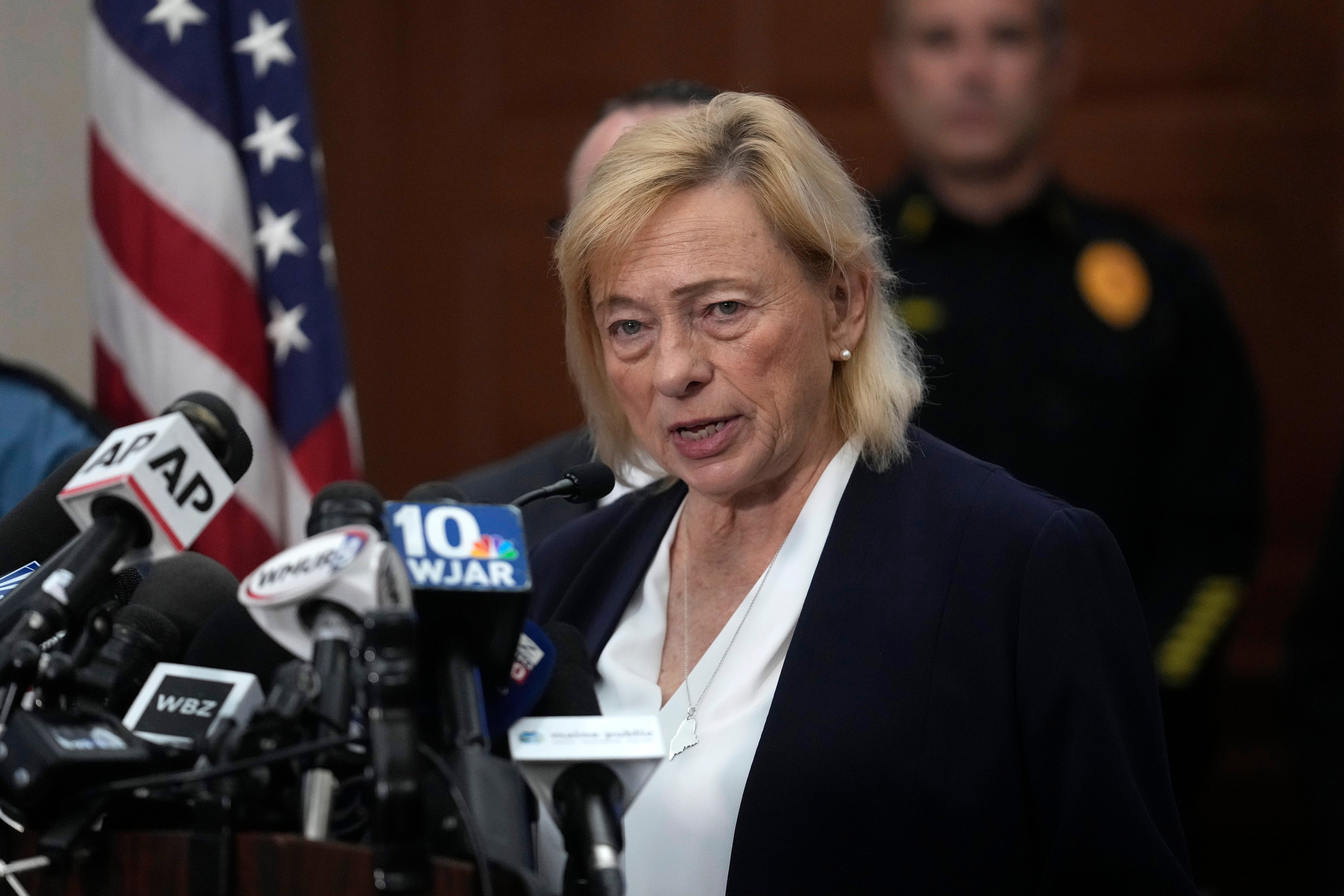Maine governor announces series of proposals following state's deadliest shooting
Maine's governor is calling for strengthening the state’s yellow flag law, boosting background checks for private gun sales and bolstering mental health crisis care following the deadliest mass shooting in state history

Maine Gov. Janet Mills called Tuesday evening for strengthening the state's yellow flag law, boosting background checks for private sales of weapons and bolstering mental crisis care, telling lawmakers that there's broad support for action to prevent future tragedies following the deadliest mass shooting in state history.
The Democratic governor delivered her State of the State address to a joint session of the Maine Legislature three months after Army reservist Robert Card killed 18 people and wounded 13 others in Lewiston, the state's second-largest city.
She wants to allow police officers to be able to go directly to a judge to start the process of removing guns from someone in a psychiatric crisis, addressing a problem that arose when a deputy was stymied by Card's refusal to answer the door for a required face-to-face meeting that's necessary under current law. The rampage happened little more than a month later.
Mills also wants to require background checks for advertised private gun sales, increase penalties for reckless private sales to prohibited people, and create a statewide network of crisis centers for people experiencing mental health emergencies.
Citing wide-ranging support for action, Mills urged lawmakers not to wait any longer or give in to the cynical attitude that it's pointless to try to change gun laws because they will be broken.
“For the sake of the communities, individuals and families now suffering immeasurable pain, for the sake of our state, doing nothing is not an option,” the governor said in remarks prepared for delivery.
In addition to gun violence and mental health, the governor used her annual speech to address extreme weather events following storms that hit Maine in recent weeks, causing millions of dollars of damage. She proposed funding for community resiliency efforts and infrastructure upgrades.
She also proposed the creation of a new violence and injury prevention program requiring the Maine Centers for Disease Control and Prevention to serve as a clearinghouse for data from law enforcement, hospitals, schools and other sources to inform public policy decisions.
Her proposal for a network of crisis centers, meanwhile, would build upon the first such facility already in operation in Portland and a second one that's being created in central Maine. A third center would be built in Lewiston as part of a statewide expansion overseen by the Maine Department of Health and Human Services.
The gun control proposals could face some pushback in a state known for its hunting traditions.
Maine already has a yellow flag law that differs from other states’ so-called red flag laws, which allow family members to go directly to a judge. The yellow flag law requires police to initiate the process.
The proposed expansion would allow police to go directly to a judge for a warrant to take someone into protective custody, allowing a warrant to be issued for the temporary removal of guns from someone in a mental health crisis without first meeting to assess whether protective custody is necessary as required by current law.
Mills also proposed that sellers utilizing an advertised private gun sale — a sale posted on Craigslist, for example — must conduct a background check utilizing commercially licensed businesses like L.L. Bean or Cabela's, while legal standards for prosecution and penalties would be changed for other private sellers to deter the reckless transfer weapons to prohibited buyers.
“Violence is not a simple problem, nor is the remedy a single, simple measure," the governor told lawmakers. "And these proposals represent progress, and they do not trample on anybody’s rights,”
The speech was delivered to the Maine Legislature in the second part of Mills' annual address. Hours earlier, she released a letter to lawmakers to address her upcoming supplemental budget and other proposals.
In her letter, Mills urged fiscal restraint after several years of budget surpluses as the state bounced back from the COVID-19 pandemic, and she said she intends to set aside $100 million for the next two-year budget when state revenues are anticipated to level off.
“I recognize there are many needs across the state, and I know, in the past, we have been able to say yes to a lot of things. However, this year is, and must be, different,” Mills wrote. “If we do not budget responsibly now, the Legislature will be forced to make painful cuts in the future — just like other states are having to do now.”
Nonetheless, she did propose some modest spending to address the state’s housing crunch, opioid epidemic, child welfare and education.
Mills cited individual income growth, low unemployment and business openings among reasons for being optimistic about the future. She said that despite recent changes including the shootings and storms, “our state is getting stronger every day.”
___
Follow David Sharp on X, formerly known as Twitter, @David_Sharp_AP
Subscribe to Independent Premium to bookmark this article
Want to bookmark your favourite articles and stories to read or reference later? Start your Independent Premium subscription today.
